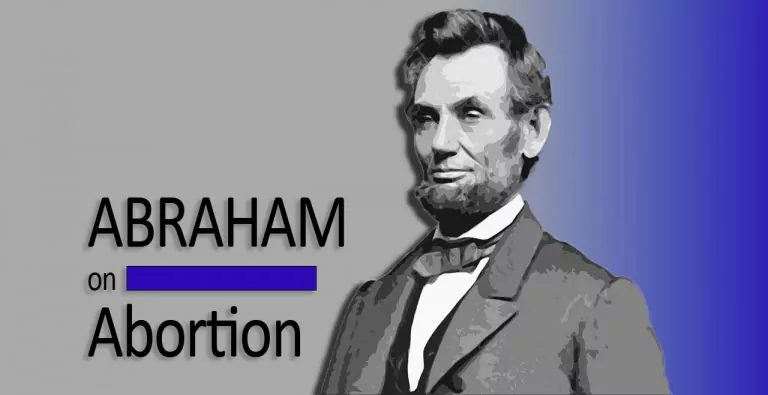How would Abraham Lincoln have addressed the biggest moral issue of our time? We don’t have to wonder. While President Lincoln may not have spoken to abortion directly, he did still give us guidance on the issue.
In the 1800s American slave trade supporters tried justifying the practice of slavery all sorts of ways. Lincoln was very good at tearing those justifications apart and the technique he used is one that transfers directly to the plight of the unborn. In one of his speeches he argued:
If A can prove, however conclusively, that he may, of right, enslave B why may not B snatch the same argument, and prove equally, that he may enslave A?
You say A is white and B is black. It is color, then; the lighter, having the right to enslave the darker? Take care. By this rule, you are to be slave to the first man you meet, with a fairer skin than your own.
You do not mean color exactly? You mean the whites are intellectually the superiors of the blacks, and, therefore have the right to enslave them? Take care again. By this rule, you are to be slave to the first man you meet, with an intellect superior to your own.
But, say you, it is a question of [self] interest; and, if you can make it your [self] interest, you have the right to enslave another. Very well. And if he can make it his [self] interest, he has the right to enslave you.
Biblical inspiration?
Lincoln turned the slave trade supporters’ justifications back on them, arguing that if it is good for you, then you shouldn’t object if this same logic is then used by someone else to justify enslaving you. If his strategy seems familiar, it’s because it aligns perfectly with what Jesus says in Matthew 7:1-2:
Judge not, that you be not judged. For in the same way you judge others, you will be judged, and with the measure you use it will be measured to you.
What Jesus issued as a warning Lincoln used as a tool. So how might this tool work in the abortion debate? We could begin by noting that if someone argues the unborn can be killed because they are smaller than us, then, as Lincoln might have put it, “Take care. By this rule you could be killed by the first man you meet who is bigger than you.”
Or if it comes down to some ability, then watch out when you meet someone who is more able than you.
Self-interest? This is a major justification for abortion: a child would interfere with our lifestyle. But, “take care again – by this rule you may be killed by any who can show it is in their self-interest for you to be dead.”
Conclusion
Lincoln lived more than 150 years ago, but we can still learn from him. Lincoln showed the standard of justice that slave owners were trying to apply was one they wouldn’t want applied to themselves. That sort of hypocrisy still happens today, and not only to the unborn. We have only to think of Christian bakery owners or flower shop owners who are not allowed to work according to their conscience. And yet the world celebrates when a dress designer refuses, because of her own convictions, to dress the First Lady.
Let’s do as Lincoln did, and ask them to apply their own arguments to themselves. And then let’s insist on an answer.












